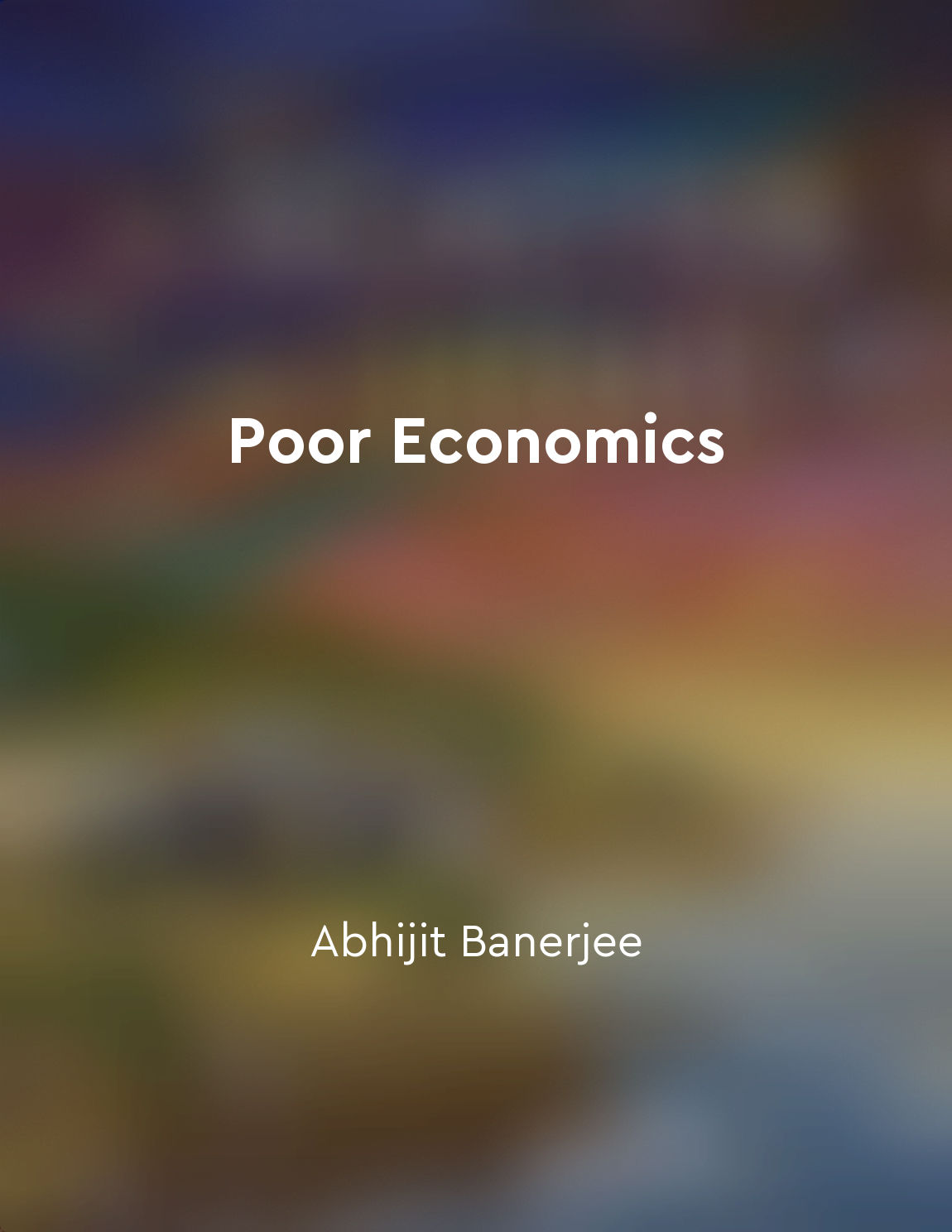Cultural factors can influence the success of poverty interventions from "summary" of Poor Economics by Abhijit Banerjee,Esther Duflo
Cultural factors play a crucial role in determining the effectiveness of poverty interventions. These factors can shape the way individuals perceive and respond to various interventions aimed at alleviating poverty. For instance, cultural norms and beliefs can influence people's willingness to participate in programs or adopt new practices. In some cases, deeply ingrained cultural practices may hinder the success of poverty interventions by creating barriers to change. Moreover, cultural factors can also impact the way interventions are designed and implemented. When policymakers fail to take into account the cultural context in which interventions are being carried out, they risk alienating the very people they are trying to help. For example, a top-down approach that does not consider local customs and traditions may be met with resistance or even rejection by the community. In addition, cultural factors can affect the sustainability of poverty interventions. Without considering the cultural norms and values of the target population, interventions may struggle to gain acceptance and support over the long term. For instance, a program that promotes a dietary change that goes against cultural preferences may not be sustainable in the face of strong resistance from the community. Furthermore, cultural factors can influence the way individuals interpret and respond to the incentives provided by poverty interventions. What may seem like a logical incentive from a policy perspective may not align with the cultural values and priorities of the target population. As a result, interventions that do not take into account these cultural nuances may fail to achieve the desired outcomes. In order to increase the success of poverty interventions, it is essential to carefully consider the cultural context in which these interventions are being implemented. By acknowledging and adapting to cultural factors, policymakers can design interventions that are more likely to be accepted, supported, and sustained by the communities they are meant to benefit. Only then can we hope to effectively address the complex and multifaceted challenges of poverty.Similar Posts
Balancing shortterm wins with long-term goals is necessary
The tension between short-term gains and long-term goals is a constant challenge in the development field. On the one hand, the...

Standing up for what is right
In those early days, I learned that to stand up for what is right is not always easy. It requires courage, conviction, and a wi...
Removing barriers for women is crucial
In order to create a more equal and just society, it is imperative that we focus on removing the barriers that hold women back....
Market forces drive capitalist economies
Market forces play a fundamental role in shaping capitalist economies. These forces, such as supply and demand, competition, an...
Encouraging sustainable practices
Encouraging sustainable practices involves fostering behaviors that are environmentally friendly and socially responsible. This...

Include women in decisionmaking
When women are included in decision-making, everyone benefits. It may seem obvious, but it's a truth that is often overlooked o...
Education is key to uplifting marginalized communities
Education alone cannot solve the systemic issues that marginalized communities face. However, it is a crucial tool in empowerin...

Teaching children how to regulate their emotions is vital
In order for children to succeed academically and in life, it is essential for them to learn how to regulate their emotions eff...
Poverty and discrimination are intertwined social issues
Poverty and discrimination are deeply connected phenomena that manifest in various aspects of society. Discrimination can lead ...
Meaning is not fixed, but constantly evolving
Meaning, as Geertz argues, is not a static entity but a fluid and ever-changing phenomenon. It is not something that is set in ...

